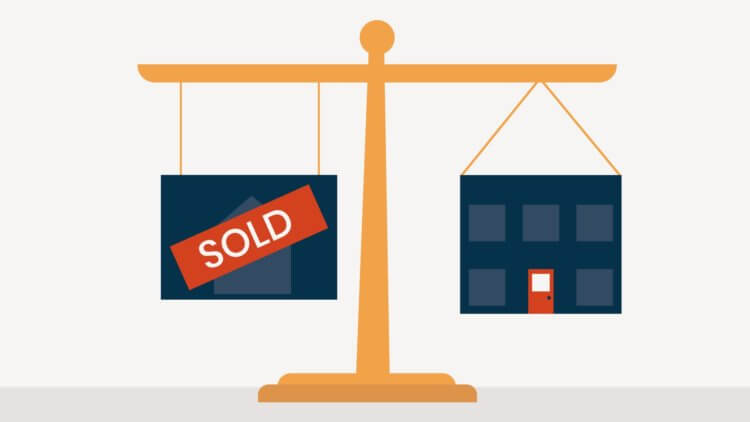Whether you’re in the early or later stages of your legal career, lawyer retirement is a natural part of the attorney’s journey. A solid lawyer retirement plan is necessary and beneficial for any lawyer’s future.
We know that preparing for lawyer retirement is a challenging and complex task. But as with any legal matter you work on, having a plan can make the process smoother and more manageable. In the following post, we’ll guide you through how to prepare for lawyer retirement—from reviewing ethical rules to financial considerations and lawyer retirement benefits. We’ll also include what you should keep in mind now to help you be ready for life after retirement.
What is the average lawyer retirement age?
According to the U.S. Census Bureau, the average retirement age in the United States is 65 for men and 63 for women, the picture is a bit different for attorneys. And according to the American Bar Association's 2020 ABA Profile of the Legal Profession, on average, lawyers are older than the majority of workers in the US. This trend carries over into the retirement years, with nearly 15% of lawyers working past age 65. This statistic means that one in six lawyers work beyond the average retirement age in America.
The average lawyer retirement age varies depending on factors ranging from a lawyer’s state and mandatory retirement policies at the lawyer’s firm.
Ethical considerations and rules for lawyer retirement
As with every aspect of your legal career, you need to know the ethical considerations and applicable rules for lawyer retirement.
While the exact rules may vary depending on your jurisdiction, you should review and learn the applicable ethical rules for retiring.
In general, you should consider:
- Handling client files and data. Where will you store client information when you retire? How will you deal with sensitive and confidential information?
- Client communication. As outlined in ABA Rule 1.4, lawyers have an obligation to communicate relevant information to clients. When and how must you notify your clients of your retirement plans? How will you document this communication? If you are transferring a client file, you must inform your client.
- Leaving or selling your law practice. You need to follow some rules if you plan to transfer your firm to a successor or sell your law practice. If you are closing your law practice, how will you close your accounts?
- Insurance. Will you need to maintain your malpractice insurance once you’re retired?
- Maintaining your law license and registration. Depending on if you’re fully or semi-retiring, you may need to keep your registration and CLE requirements.
Start researching with your local state bar. Some states may offer resources for attorneys making lawyer retirement plans. For example, the California State Bar, has a Senior Lawyers Ethics Resources page online that collects links to applicable rules and statutes, ethics opinions, and other useful resources.
How to prepare for lawyer retirement
No matter how close or how far you are from retirement, you can take steps to better enjoy lawyer retirement in the future. Consider the following:
Take part in your 401(k) plan

It’s easy to put retirement savings plans on the back-burner while you’re working. But that’s the time where it’s most important to focus on them. For example, if you have a 401(k) plan, are you making the most of it? Take advantage of any employer matching contributions available to you and make more contributions where possible.
And if you think retirement is too far off to think about, you might want to reconsider. It may be surprising to hear, but as Financial Planner Darren Wurz explains, even young lawyers early in their careers should be planning for retirement:
Lawyer retirement planning should start as early as possible because when it comes to investing, time is your most valuable commodity. The earlier you start, the more time your money has to compound and grow, and the more likely it is that you will reach your financial goals.
Savings and investments
If you have other retirement savings and investments, don’t ignore them. Take the time to get a clear understanding of your financial situation now, so you can better gauge how much you’ll need to retire. You’ll also have a better idea of whether you might need to explore more savings options prior to retirement.
Create or update your retirement budget
Your living expenses in retirement will be different than what they are today. In addition to understanding what financial resources you’ll have when you retire, you’ll want to understand how much money you’ll need for the lifestyle you want (and can lead). If you have a spouse or partner, include them in this process.
While you won’t be able to predict your exact retirement living expenses, you can create an updated budget. Treat this budgeting process as an exercise to give yourself a clearer picture of your retirement finances. Include expenses like:
- Essential costs like housing, taxes, utilities, insurance, food, transportation, clothing, and healthcare.
- Possible post-retirement costs like additional healthcare and retirement home fees.
- Non-essential costs like travel, entertainment, subscriptions, donations, hobbies, sports and recreation, gifts, etc.
You can also create a few alternative versions of your future budget that reflect different styles of living. For example, you can create a basic cost-of-living budget and another that includes higher expenses like travel.
Understand your lawyer retirement benefits
What lawyer retirement benefits will you have access to? Familiarize yourself with what you’ll have available to you, so you can make better financial decisions and plan in advance.
Medicare’s federal health insurance benefits typically begin at age 65, so you should explore your options. For example, you might want a combination of Medicare and supplemental health insurance.
Similarly, Social Security can offer lawyers retirement benefits, which will vary based on age. For most, the earliest age for Social Security benefits to begin is 62.
Organize your clients and referrals

As mentioned earlier, informing your clients about your retirement plans—and what will happen to their case and file when you retire—is a key ethical obligation as you move into retirement. Make sure you follow the rules in your area. Additionally, be prepared in advance with a plan for how you’ll carry your communication plan out.
Law firm succession or exit planning
Whether you’re planning to retire imminently or in the future, you should have a thorough exit plan so you’re prepared for retirement and unpredictable events.
If you don’t have one already, creating a law firm succession plan—which could include finding a suitable successor—is an important step. Our guide can walk you through how to develop a robust law firm succession plan.
Selling your law practice is another option to consider when you’re ready to retire, which also requires careful planning and preparation.
Estate planning
Having an estate plan now is important, even before you need to execute it. Your estate plan should include the following documents:
- A will. Be sure that your will is up-to-date to ensure you can dispose of your property and assets properly. You may also want to create a living will or health care directive.
- A General Durable Power of Attorney (GPOA). This will authorize a specific individual to act on your behalf if you are incapacitated–Learn about Form 2848.
Remember to communicate with your estate executor or a trusted family member (who will be involved in administering your estate). They should know where to find and how to access these important documents, as well as things like bank information, safe deposit boxes, and client files.
Communicate with family and loved ones
Preparing for lawyer retirement is a complex task, but you don’t have to—and shouldn’t—do it alone. Communicate with your family throughout the planning process. After all, your goal is to enjoy your retirement with your loved ones after you bring your successful career to a close.
You may like these posts
Life after retirement

When making lawyer retirement plans, it’s important to think beyond the day of your retirement party: How do you want your life to look after retirement? Consider the following:
Maintain good health
In order to fully enjoy your life after retirement, you’ll want to be as healthy as possible. However, the legal profession can be stressful, and it can tax your health. Make taking care of your physical and mental health part of your plan now. Prioritize having a healthy diet, exercise, and regular medical checkups and care so you can feel your best after you’ve retired.
Consider doing some pro bono work
Once you’ve retired, there are still ways to put your knowledge and experience to good use.
One avenue to consider is pro bono work, thanks to emeritus and pro bono practice rules. These rules make it easier for retired or inactive attorneys who agree to limit their practice to pro bono cases by easing some of the licensing burdens.
Rules vary by state, so check what applies to your jurisdiction. The California State Bar, for example, has a Pro Bono Practice Program that allows retired lawyers to assist low-income individuals in the state on a pro bono basis.
Consider joining a non-profit organization
Senior lawyers may also find opportunities to contribute pro bono and volunteer services to non-profit organizations.
For example, the International Senior Lawyers Project, is a non-profit organization that uses the skills and expertise of retired attorneys to offer volunteer legal assistance to non-profit organizations, academic institutions, and governmental agencies.
Pursue current and new hobbies

After dedicating yourself to a challenging and rewarding legal career, it can feel strange to suddenly not have work to turn to. Whether you want to maintain a connection to the legal profession after retirement or you want to end that chapter completely, it’s important to find purpose.
Think about what you really want to do. Is there a much-loved hobby that you couldn’t fully dedicate yourself to when you were a full-time attorney? Is there something that you’ve always wanted to pursue but never had the time to try?
Whatever brings you joy and purpose, find it.
Lawyer retirement can be less stressful with proper planning
No matter what, transitioning towards lawyer retirement is a significant life event—but it doesn’t have to be overly stressful. By researching your ethical obligations, having important discussions with loved ones, and creating a lawyer retirement plan that fits your practice and your lifestyle, you can approach retirement as a positive new chapter in your life.
We published this blog post in September 2021. Last updated: .
Categorized in: Uncategorized








